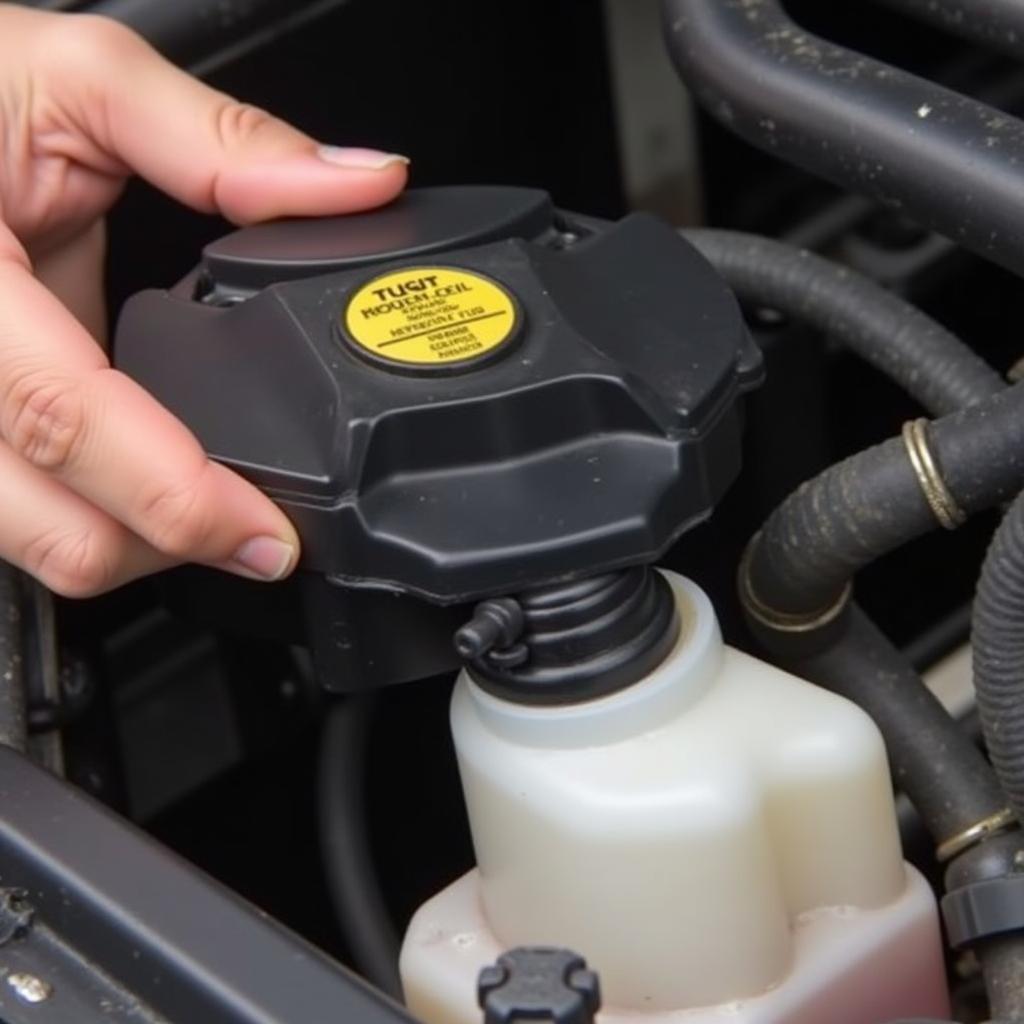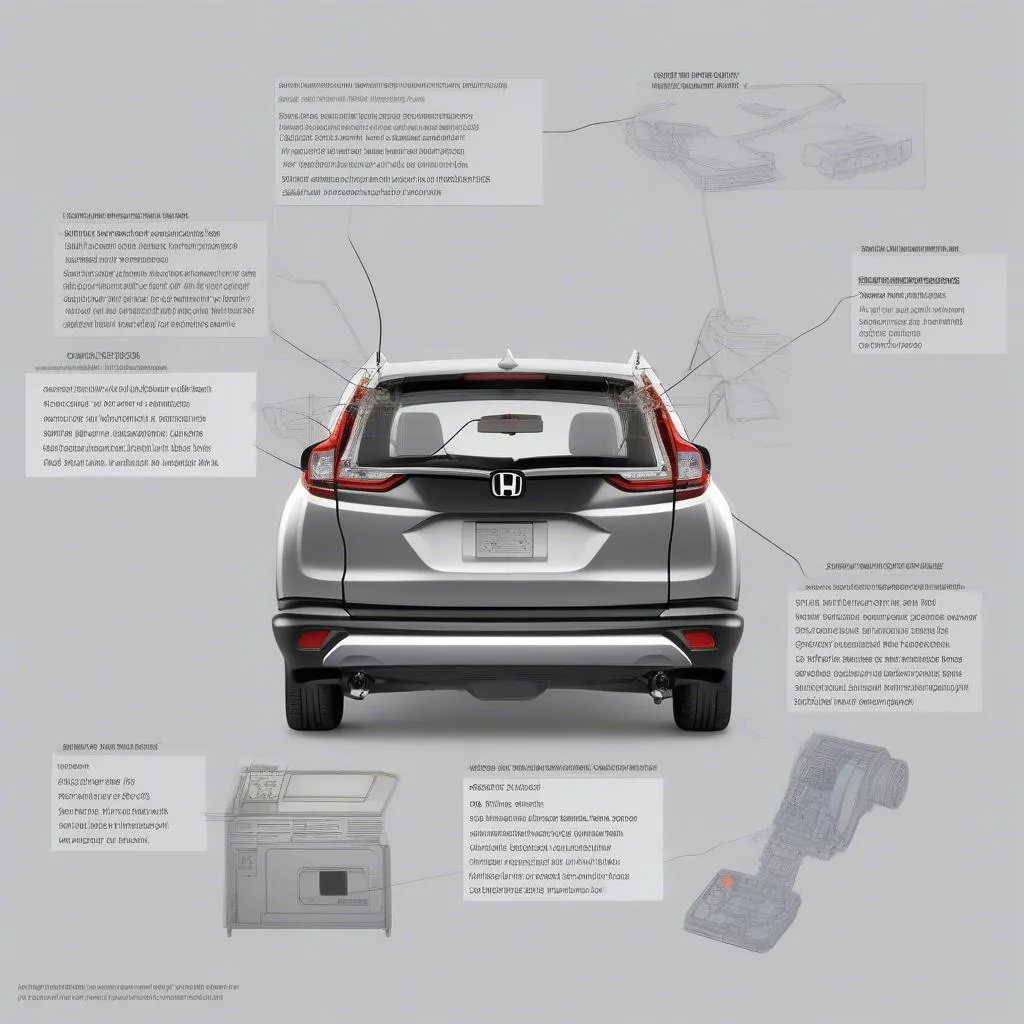Your car battery is completely drained and you’re stranded? Don’t panic! This is a common problem, and there are several ways to get your car back on the road. From simple jump-starts to more complex diagnostic procedures, we’ll cover everything you need to know when your car battery is completely dead.
Why Is My Car Battery Completely Drained?
Understanding the reasons behind a dead battery is crucial for preventing it from happening again. A dead battery can be caused by several factors, from simply leaving your lights on to more complex electrical issues. If my car wont start because of a dead battery, it’s important to diagnose the root cause. Some common culprits include:
- Parasitic drain: Even when your car is off, certain systems continue to draw power, slowly draining the battery. This “parasitic drain” can be caused by faulty wiring, malfunctioning components, or even aftermarket accessories.
- Extreme temperatures: Both hot and cold weather can affect your battery’s performance. Extreme heat can cause the battery fluid to evaporate, while extreme cold can slow down the chemical reactions that produce power.
- Old age: Like any other component, car batteries have a limited lifespan. Over time, their ability to hold a charge diminishes, eventually leading to a completely drained battery.
- Alternator problems: The alternator recharges the battery while the engine is running. A faulty alternator won’t recharge the battery effectively, leading to a drained battery.
- Human error: Accidentally leaving lights, interior lights, or the radio on can quickly drain your battery.
What Can I Do if My Car Battery Is Completely Drained?
If you find yourself with a completely drained car battery, there are a few options available to you:
- Jump-starting: This is the quickest and most common solution. You’ll need jumper cables and another vehicle with a working battery. Connect the cables correctly, and then start the working vehicle. Let it run for a few minutes before attempting to start your car. For more info, see our article on common causes of battery drain.
- Using a battery charger: If you have access to a battery charger, you can connect it to your dead battery and allow it to charge for several hours.
- Calling for roadside assistance: If you’re not comfortable jump-starting your car or don’t have the necessary equipment, you can call a roadside assistance service.
How Can I Prevent My Car Battery From Draining Completely?
Preventing a dead battery is often easier than dealing with the consequences. Here are some preventative measures you can take:
- Regular battery testing: Have your battery tested regularly, especially during extreme weather conditions. This can help identify potential problems before they lead to a completely drained battery. You might be wondering, if my car battery dies will it recharge after being completely drained? While sometimes possible, it’s best to get it checked.
- Limiting short trips: Short trips don’t give the alternator enough time to fully recharge the battery. If you primarily drive short distances, consider taking a longer drive occasionally to allow the battery to recharge.
- Turning off accessories: Make sure all lights, radio, and other accessories are turned off when you park your car.
- Keeping the battery clean: Corrosion on the battery terminals can hinder the flow of electricity. Clean the terminals regularly with a mixture of baking soda and water.
- Proper storage: If you’re storing your car for an extended period, disconnect the negative battery cable to prevent drainage. Learn more about dead battery in a car.
“A well-maintained battery is essential for reliable vehicle operation,” says John Smith, ASE Certified Master Technician. “Regular checks and preventative maintenance can significantly extend the life of your battery and minimize the risk of unexpected breakdowns.”
How Long Does it Take to Jumpstart a Car With a Completely Drained Battery?
Generally, jump-starting a car with a completely drained battery can take anywhere from a few minutes to half an hour, allowing the dead battery to receive enough charge to start the engine. However, if the battery won’t hold a charge, you should check our article about a car battery wont keep charge.
“Many drivers underestimate the importance of a healthy battery,” adds Sarah Jones, Lead Automotive Engineer. “A dead battery can lead to more than just inconvenience; it can also affect other electrical systems in the vehicle.”
Conclusion
A completely drained car battery can be a frustrating experience, but understanding the causes and solutions can help you get back on the road quickly and prevent future occurrences. By following the preventative measures outlined above and addressing any underlying issues promptly, you can ensure your car battery remains in good working order. Remember, regular maintenance is key to a healthy and reliable car battery. If your car battery is completely drained, don’t hesitate to seek professional help if needed.
FAQ
- What are the signs of a dying car battery? Dim headlights, slow engine cranking, and clicking sounds when turning the key are all signs of a dying battery.
- How often should I replace my car battery? Most car batteries last between three and five years, but various factors can affect their lifespan.
- Can I jump-start my car with any vehicle? It’s best to use a vehicle with a similar battery size and voltage.
- Is it safe to jump-start a car? Yes, as long as you follow the correct procedures and safety precautions.
- What should I do if my car battery keeps dying? If your car battery keeps dying, there’s likely an underlying issue that needs to be addressed. Have a qualified mechanic inspect your vehicle’s electrical system.
- How can I tell if my alternator is bad? A common sign of a failing alternator is dimming headlights while the engine is running.
- Can extreme temperatures damage my car battery? Yes, both extreme heat and cold can significantly impact the performance and lifespan of a car battery.


